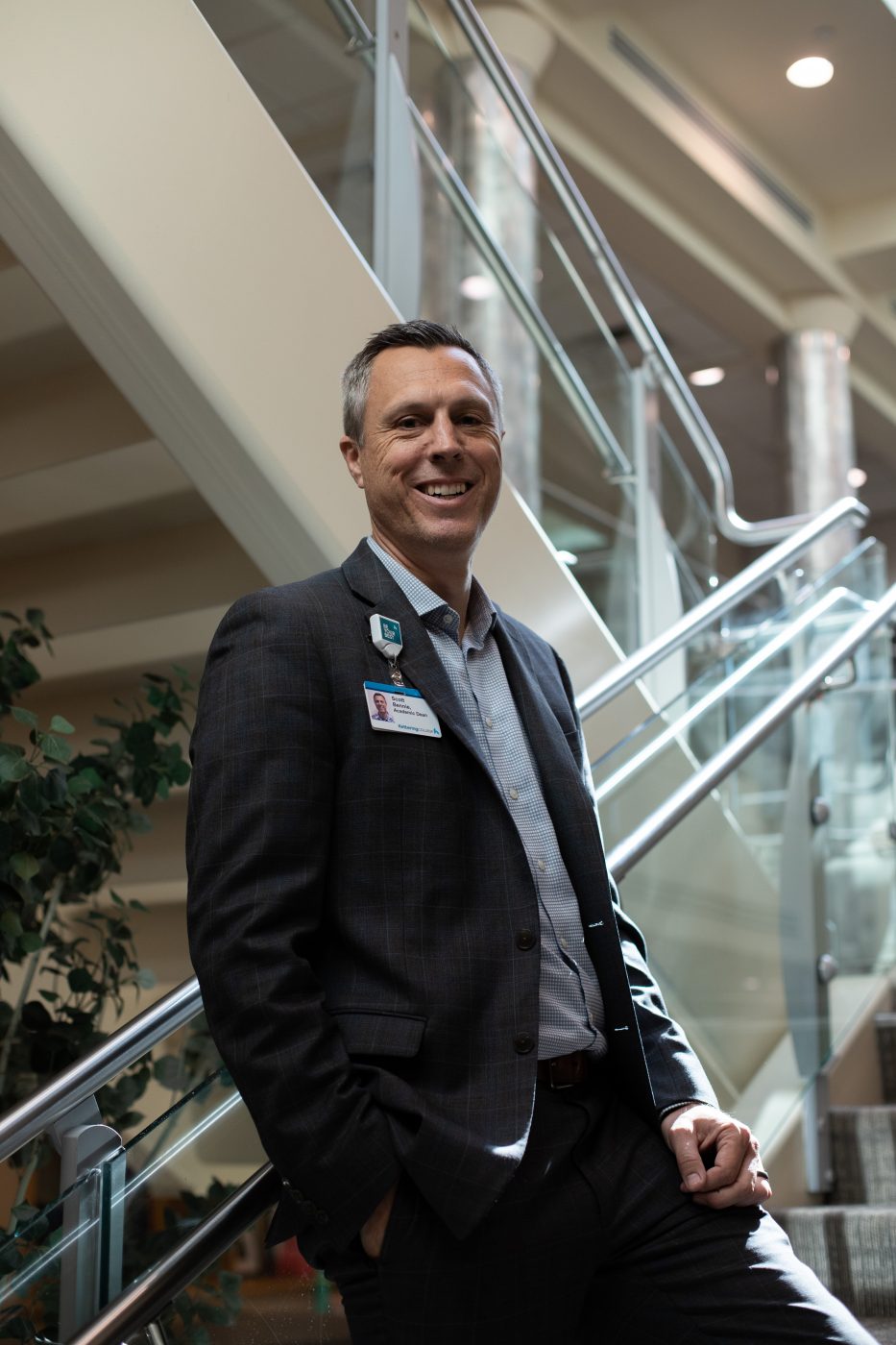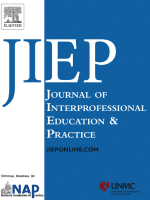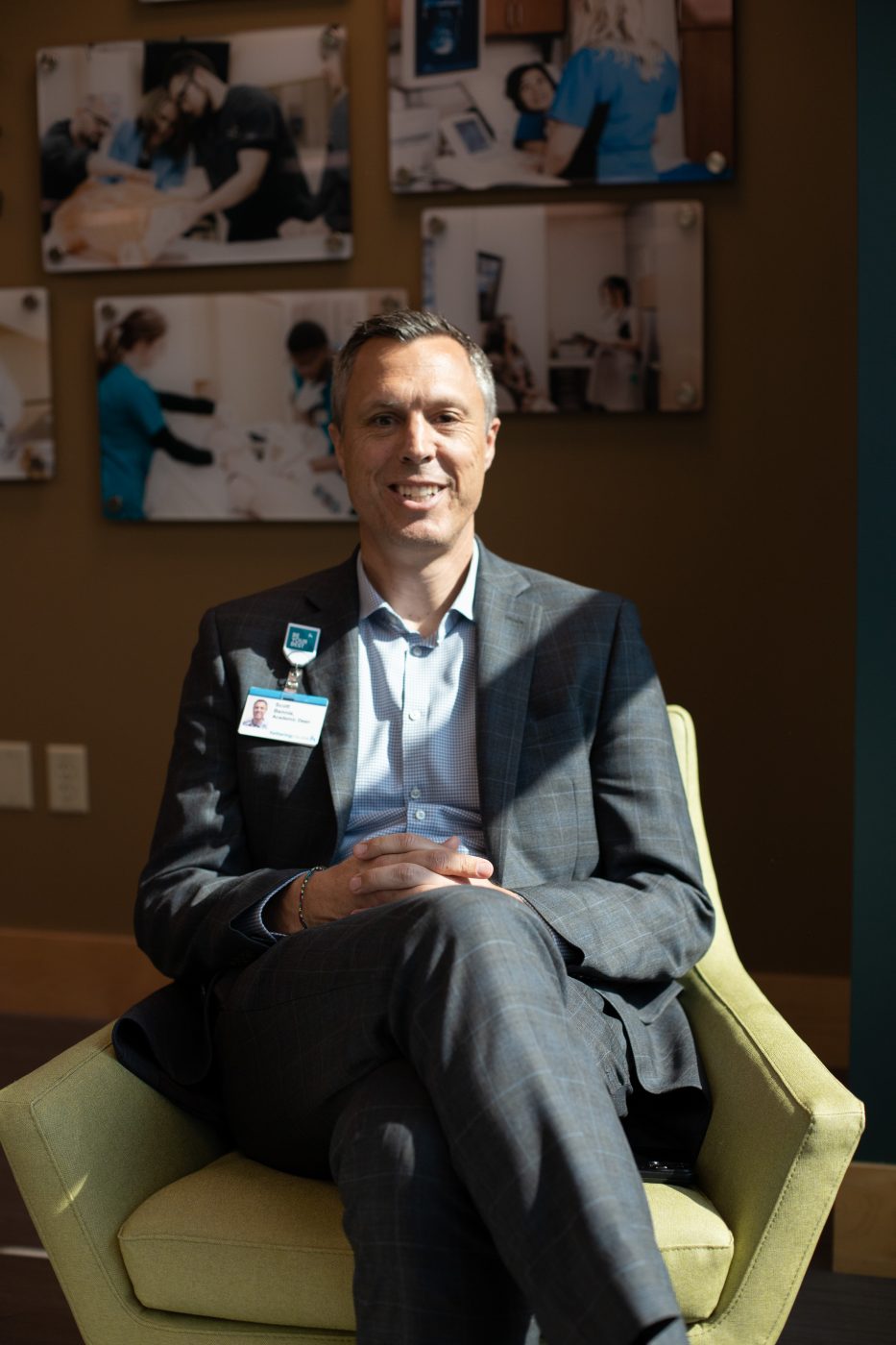Dean of Academic Affairs Collaborates with Peers to Engage Students

Collaboration is a key component in higher education and something we value at Kettering College. Putting minds together for discourse and knowledge exchange allows professional educators to bring their area of expertise to the forefront for the greater good of our students.
This cohesiveness is referred to as interprofessional education (IPE) when educators with a diversity of strengths evaluate ideas and theories together. The goal of IPE work is to approach teaching practices with this same collaborative spirit to set the example for students to do the same with their peers. Ultimately, this IPE mindset translates to our students one day being healthcare professionals who communicate openly with other healthcare professionals to treat patients in a holistic manner.
“IPE can be defined as occasions when two or more professions learn with, from and about each other to improve collaboration and the quality of care.”
-The Center for the Advancement of Interprofessional Education
Kettering College’s Scott Bennie, Dean of Academic Affairs and Chief Academic Officer, is armed with leading the academic side of the college. This encompasses guiding our faculty on best practices for: teaching, learning, scholarship, and service. In other words, he helps our faculty succeed, so they can most effectively engage students for their success.
Scott Bennie achieves this through scholarship to fuel his mind, so he can fuel other educators’ minds, who, in turn, fuel their students’ minds. He believes that part of growing as an educator is working collaboratively to continually build on research-based data that answers pertinent questions.
“It’s all about contributing our piece to the research pie with our area of expertise and building the research pie with others. We have all these experts on our campus, who can contribute their piece, so there’s never a need to do solo research.”
– Scott Bennie, PT, DSc, MBA, FNAP, Dean of Academic Affairs and Chief Academic Officer
Each month, he meets with a group of 12-15 education professionals to divide and conquer scholarly work they could not accomplish on their own. They start each meeting off with simple conversation and curiosity with a common end-goal: to find answers to research questions that will help higher education professionals reach their students most effectively.
Scott points out that neither he nor his research collaborators have large amounts of time to devote to scholarship, so by combining his 15 minutes with everyone else’s 15 minutes, this soon adds up to several hours of focused time a week to take on a comprehensive approach to accomplish much more work than he could do alone.
As a result of debate and discussion that started after a presentation by another colleague at a professional conference, the group developed a research question, created a 30+ item survey, and received IRB approval to proceed.

The material they created soon turned into an academic article that was accepted and published in the Journal of Interprofessional Education & Practice titled, “Organizational Structure and Resources of IPE Programs in the United States: A National Survey.” Scott and his team used a mixed methodology of quantitative survey and qualitative analysis to identify relationships between IPE program organizational factors.
Scott says, “I’m much more comfortable on the quantitative side so volunteered to analyze that data, and when the qualitative side of our study needed more people, I saw it as a great opportunity for me to learn from others who are top-tier qualitative researchers and expand my understanding. I have learned so much through this process.”
As the group who analyzed the qualitative data continued to meet online during COVID-19, the conversation progressed toward how the pandemic was affecting them. As they shared their personal stories, they soon realized this smaller group’s focus could examine how the pandemic was affecting their work and that of their colleagues in the field of IPE. The follow-up qualitative questions addressed the practices in IPE during the everchanging landscape of COVID-19. This data turned into their second proposed and accepted article.

Published in Journal of Allied Health, the research team’s second article is called, “The Slow Creep Back: Threats and Opportunities for IPE Posed by COVID-19.” This article examined the data collected from 21 U.S. IPE programs to discover three primary themes:
(1) Transition to a virtual environment
(2) Uncertainties and fears regarding finance and program sustainability
(3) Opportunities for improvements in programming, delivery, instructional design, experiential learning, and assessment.
Scott says the group of professionals continues to begin every call by talking as human beings and connecting. This is the same practice that has uncovered their first two articles and has created their next article, currently in review for Academic Medicine. This proposed article examines the role of the academic health center in fulfilling healthcare’s recently updated Quintuple Aim, which promotes equitable care as the fifth aim, and ways in which higher education can help deliver that to the underserved.

The group works like a well-oiled machine, recognizing each other’s strengths, all humbly working together without ego, which is not always an easy feat in academic writing where recognition is the goal. They acknowledge the power of collaboration and celebrate and appreciate everyone’s contributions and work, so the whole unit can succeed by disseminating vital information.
Scott says we are all responsible to lead by example, and he hopes to do this by continuing to put his mind and time towards collaborating with others. He is currently working on follow-up studies for each of the articles that were recently published as well as new collaborations with Kettering College respiratory care faculty on their use of IPE simulation. Scott encourages other faculty to tap into one of the best research and scholarship resources on campus: each other.
About Kettering College
Kettering College is a fully accredited, coeducational college that specializes in health science education. A division of Kettering Health, the College is located on the Kettering Health Main campus in a suburb of Dayton, Ohio, and is chartered by the Seventh-day Adventist Church. Kettering College offers an Occupational Therapy Doctoral program, a Master of Physician Assistant, Bachelor and Associate of Science degrees, and certificate programs.
- Restructure of Student Success Center: Holistic Approach for the Whole Student
- Doris Imhoff: A Warm, Welcoming Spirit at Kettering College
- Health Sciences Professors Collaborate and Earn Grant
- Physics Professor Uses Rockets to Launch Learning
- Women’s History Month Spotlight: Dr. Paula Reams, Dean of Nursing



